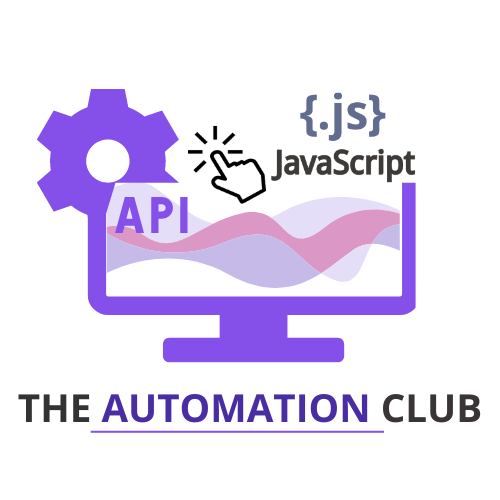Enhancing Content Creation with AI
The integration of artificial intelligence (AI) is reshaping the landscape of content development, allowing businesses to connect with their audiences in more meaningful ways. By automating repetitive tasks and providing insightful analytics, AI enables creators to focus on crafting engaging narratives that resonate with their target demographics.
Key Benefits of AI in Content Development
AI technologies are making significant contributions to improving the content creation process. Here are some of the most notable advantages:
- Streamlined Processes: Automation of routine tasks such as editing, formatting, and drafting allows creators to dedicate more time to strategic planning and creative endeavors.
- Insightful Analytics: AI-driven tools can analyze audience behavior and preferences, offering valuable insights that inform content strategies and enhance engagement.
- SEO Enhancement: AI applications can optimize content for search engines, ensuring it reaches the intended audience effectively and efficiently.
- Personalized Content: By leveraging user data, AI can tailor content to meet individual preferences, increasing relevance and user engagement.
Leading AI Tools for Content Creation
Several innovative AI tools are available that can significantly enhance the content creation process:
| Tool | Functionality | Benefits |
|---|---|---|
| Jasper | Content generation | Produces high-quality written content based on user prompts, saving time and effort. |
| Canva | Graphic design | Utilizes AI to assist in creating visually appealing graphics and layouts. |
| Lumen5 | Video creation | Transforms text content into engaging videos, enhancing multimedia storytelling. |
| BuzzSumo | Content research | Identifies trending topics and high-performing content, guiding content strategy. |
Leveraging Quora for Content Inspiration
Quora serves as a valuable platform for content creators seeking to expand their reach and engage with their audience. Here’s how to effectively utilize Quora for content ideas:
- Identify Relevant Questions: Use AI tools to discover popular questions within your niche. This can guide your content creation efforts and ensure relevance.
- Engage Authentically: Participate in discussions by providing thoughtful answers and insights. This builds credibility and encourages traffic to your content.
- Repurpose High-Performing Content: Transform successful Quora answers into blog posts or social media content, maximizing the value of your contributions.
“AI is not just a tool; it is a partner in the creative process, enabling us to produce content that resonates deeply with our audience.”
Challenges and Considerations in AI-Driven Content Creation
While AI offers numerous advantages, there are also challenges and considerations that content creators should be aware of:
| Challenge | Description | Potential Solutions |
|---|---|---|
| Quality Control | AI-generated content may lack the nuance and creativity of human writing. | Implement a review process where human editors refine AI-generated content. |
| Data Privacy | Using AI tools often involves collecting user data, raising privacy concerns. | Ensure compliance with data protection regulations and prioritize user consent. |
| Dependence on Technology | Over-reliance on AI tools can lead to a decline in human creativity and critical thinking. | Balance AI use with human input to maintain creativity and originality. |
| Cost of Implementation | High-quality AI tools can be expensive, especially for small businesses. | Evaluate ROI and consider free or lower-cost alternatives before investing. |
Pros and Cons of Using AI in Content Creation
Understanding the advantages and disadvantages of AI in content creation can help you make informed decisions:
| Pros | Cons |
|---|---|
| Increased Efficiency: Automates repetitive tasks, saving time. | Lack of Creativity: AI may produce generic content lacking a personal touch. |
| Data-Driven Insights: Provides analytics to inform content strategy. | Quality Variability: The quality of AI-generated content can vary significantly. |
| Scalability: Enables the production of large volumes of content quickly. | Ethical Concerns: Potential issues with plagiarism and originality. |
| Personalization: Tailors content to individual user preferences. | Dependence on Data: Requires substantial data to function effectively. |
Key Takeaways for Content Creators
Here are some essential points to consider when integrating AI into your content creation strategy:
- Start Small: Begin with one or two AI tools to assess their impact on your workflow.
- Maintain Human Oversight: Always review AI-generated content to ensure quality and relevance.
- Stay Informed: Keep up with the latest developments in AI technology to leverage new features and tools.
- Measure Performance: Use analytics to track the effectiveness of AI-generated content and make adjustments as needed.
- Engage Your Audience: Use AI insights to create content that resonates with your audience’s interests and needs.
Future Trends in AI and Content Creation
The future of AI in content creation is promising, with several trends expected to shape the industry:
- Enhanced Natural Language Processing: Improvements in NLP will lead to more sophisticated and human-like content generation.
- Integration with Other Technologies: AI will increasingly integrate with other technologies, such as augmented reality (AR) and virtual reality (VR), to create immersive content experiences.
- Greater Personalization: AI will enable even more personalized content experiences based on user behavior and preferences.
- Ethical AI Development: There will be a growing emphasis on ethical considerations in AI development, focusing on transparency and accountability.
Conclusion
As artificial intelligence continues to evolve, its role in content creation will become increasingly significant. By understanding the benefits, challenges, and future trends, content creators can harness the power of AI to enhance their strategies, improve efficiency, and ultimately deliver more engaging content to their audiences.
